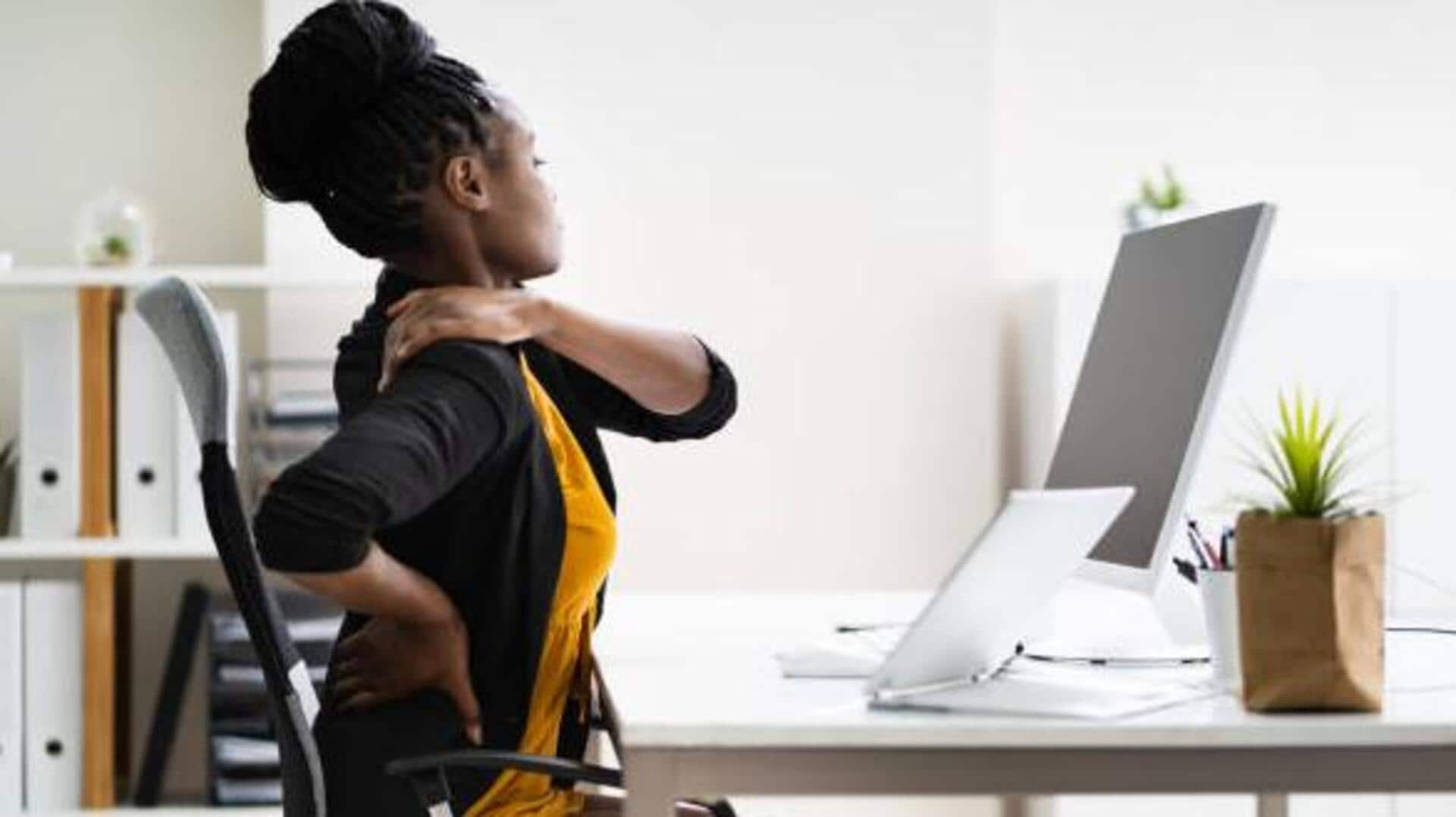
Sitting posture and back pain: Myth v/s facts
What's the story
Sitting posture and back pain are commonly associated, with several myths surrounding them. While some think sitting for too long is the main reason behind back pain, others claim that posture matters more. In this article, we will fact-check popular health myths on sitting posture and back pain, and tell you what really affects our spinal health.
Posture myth
Myth: Perfect posture prevents all back pain
The notion that perfect posture will keep allidoscope of back pain at bay is a common misconception. Though, good posture can make things easy for your spine, it's not the only solution for staying away from back pain. Aspects like muscle strength, flexibility, overall activity levels also contribute to a healthy spine. Hence, merely paying attention to posture may not keep your bothersome away.
Sitting myth
Myth: Sitting is the main cause of back pain
While many people assume sitting is the root cause of back pain, that's an oversimplification. While prolonged sitting may contribute to discomfort because of reduced blood flow and muscle inactivity, it's not the only culprit behind back problems. Other factors such as lack of exercise, poor ergonomics at workstations, underlying medical conditions, etc., can also cause or aggravate back problems.
Chair myth
Myth: Expensive chairs solve back problems
There's a common misconception that investing in pricey ergonomic chairs will solve all sitting-related back issues. While these chairs can provide better support than standard ones by encouraging proper alignment and reducing pressure points, they are not the cure-all solution to everyone's needs. Regular movement breaks and exercises targeting core muscles are equally important in managing or preventing discomfort.
Desk myth
Myth: Standing desks eliminate back pain completely
While standing desks are considered a solution to reduce sitting hours, they don't completely eliminate back pain. Using them incorrectly, or standing for too long without breaks, may result in leg fatigue or foot strain. A combination of sitting and standing, based on your needs, can help you avoid discomfort and ensure complete spinal health.